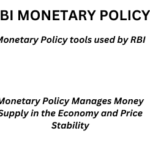Quad Summit 2022: Basics Explained

Japan hosted the in-person summit of the Quadrilateral Security Dialogue—or Quad—with the leaders of Australia, India, and the USA. It marked their fourth joint event and their second in-person summit.
- A joint statement vowed their “steadfast commitment to a free and open Indo-Pacific that is inclusive and resilient.”. The statement highlighted “challenges to the maritime rules-based order, including in the East and South China Seas” — both waters that have long been contested, with overlapping territorial claims by numerous countries.
- On the Ukraine issue, the statement “reiterated QUAD’s strong resolve to maintain the peace and stability in the region,” reiterating commitment to international law, including the UN Charter, respect for sovereignty and territorial integrity of all states.”
- Launched a maritime initiative to combat illegal fishing and pledged to invest more than $50bn in developing infrastructure in the Indo-Pacific as part of their efforts to counter China’s growing influence in the region.
- Announced a new maritime surveillance initiative – the Indo-Pacific Partnership for Maritime Domain Awareness (IPMDA) – that it said will work with regional partners to respond to humanitarian and natural disasters and combat illegal fishing.
- Separately, Biden also launched in Tokyo on Monday the Indo-Pacific Economic Framework for Prosperity (IPEF), an economic plan that seeks to set standards on labor, supply chains, clean energy, and anti-corruption. The framework, launched in partnership with 12 other countries including India, represents a US attempt to boost economic ties with nations in the Indo Pacific.
LEARNING FROM HOME/WITHOUT CLASSES/BASICS
The quadrilateral security dialogue includes Japan, India, United States and Australia.
All four nations find a common ground, share a vision of an open and free Indo-Pacific, of being the democratic nations and common interests of unhindered maritime trade and security.
Free, open, prosperous and inclusive Indo-Pacific region serves the long-term interests of all countries in the region and of the world at large; Tackle common challenges of terrorism and proliferation; Upholding the rules-based order in the Indo-Pacific and respect for international law, freedom of navigation and overflight.
INDIA AND QUAD
India’s approach to the Quadrilateral consultative forum, which comprises Australia, India, Japan, and the United States, reflects New Delhi’s plural foreign policy arch in an evolving Indo-Pacific construct.
Balancing China’s growing outreach with the Indo-Pacific region while concurrently affirming bilateralism with Beijing explains India’s strategic autonomy and pluralism in its foreign policy
To protect its own maritime interests which are being threatened by the rising Chinese presence in the Indian Ocean Region (IOR).
It will serve two geostrategic goals of India viz. countering China’s aggressive on border with India’s assertive in the maritime domain and emerge as a net security provider in the region.
The maritime sphere is wide open to India to undertake coalition building, rule setting, and other forms of strategic exploration as right now Quad is more about cooperation in maritime security and climate change and not so much into territorial talks.
It gives New Delhi a powerful platform to advance its interests in East Asia, coordinate strategies with powerful friends, and add more strength to its Act East initiative.
The geostrategic term “Indo-Pacific” as opposed to “Asia-Pacific” has been gaining currency. Such an alliance would be a useful counter to China’s string of pearls and its all-weather friendship with Pakistan.




0 Comments